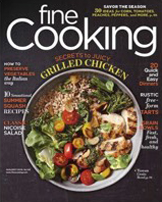
The kosher wine from the Passovers of my childhood tasted more like Robitussin than table wine: treacly purple, poured from a screw-top bottle, and made from Concord grapes, it was wine to be tolerated, not savored. It sure isn’t what lured me into the wine and food business.
So I was flabbergasted recently at a tasting in New York when I came across some seriously delicious wines from Australia, California, Chile, Israel, and France—including bottlings of esteemed Bordeaux and Champagne—that just happened to be kosher.
Made under strict supervision
Wine has long played a part in Jewish ritual (especially sweet wine, which is possibly why kosher wines have had such a bad rap).
但这里的葡萄酒我们谈论来自the same varietals as their nonkosher cousins, not from table grapes. The only difference is that kosher wines, like other kosher foods, need to be made under strict rabbinical supervision and according to Jewish religious and dietary laws. After the grapes are picked, only strictly Sabbath observant Jews can handle the wine and the equipment
In addition, wine that’s kosher for Passover must have no contact with wheat, grain, dough, or leavens. Wine yeast is okay as long as it’s certified kosher. Refining agents can’t be animal-based— kosher fish gelatin or a powdered clay called bentonite is used instead of gelatin or egg whites.
In Israel, kosher growing laws are especially firm.Vines can’t be harvested until their fourth year and the vineyard, if within the Biblical portion of Israel, must be left fallow every seven years.
Kosher wine is often flash-pasteurized.This makes the winemevushal,which means that it can remain kosher even if handled by non-Jews (this would be important at, say, an orthodox bar mitzvah or wedding held at a kosher facility. If a wine isn’t mevushal, only Jewish waiters can pour it). Some feel that mevushal wines lose some of their subtleties in the flash-pasteurizing process, but there’s also research indicating that such brief heating and rapid cooling doesn’t rob flavors and may actually enhance them.
Delicious kosher wines for Passover and beyond
Whether you keep a kosher household, plan to attend or prepare a Passover seder, or just like good wines, consider trying some of these. “There was a time when finding kosher wines we were comfortable selling on their own merits was tough,” says Peter Granoff, proprietor ofwine.com, an online wine retailer. Granoff, who stocks kosher wines year-round, insists that “they have to be good enough to be enjoyed by wine drinkers for whom kosher status isn’t an issue.”
Recently I sat down with a couple of colleagues to taste an assortment of kosher wines. Here’s what we chose for delicious drinking any time.
Red wines
• Château de Paraza Minervois (Languedoc-Roussillon). Aromas of fruit jam with ripe, full-bodied fruit. A good partner for leg of lamb.
• Château La Rèze Minervois (Languedoc-Roussillon). With aromas of earth and licorice, this ripe, full-bodied red would be great with grilled chicken or lamb chops.
• Hagafen Pinot Noir (Napa). Medium-bodied and well-balanced, with yummy red fruit flavors balanced by light tannins. A versatile crowd-pleaser and a bargain.
• Alfasi Reserve Merlot (Chile). Dry, fruity and full-bodied; a good match for beef stews and braises.
• Teal Lake Shiraz (Southeast Australia). This big-boy Shiraz (the grape also known as Syrah) has raisiny and almost meaty aromas. Great with grilled meats.
• Château Labégorce (Bordeaux). This Margaux has an intense bouquet that’s rich with cherry aromas. Full-bodied with big tannins, it’s one to lay down and drink in a couple of years. An excellent value.
• Château Giscours (Bordeaux). An elegant, powerful third-growth Margaux, and a red-meat wine for sure. Drink it with seared lamb chops, filet, duck, or sirloin—a few years from now.
White wines
• Chablis Domaine de la Tortue (France). Crisp and lively with minerally flavors and a round finish. Less austere than many other Chablis we’ve tasted.
• Weinstock Cellars Contour Chenin Blanc (California). Lovely pineappley fruit flavors with a long, dry finish.
• Yarden Galilee Chardonnay (Israel). A big, buttery mouthful, this wine needs food. It was good with gefilte fish (the traditional Passover whitefish dumplings) and would go well with salmon, sole, and roast chicken, too.
• Teal Lake Chardonnay (Australia). Elegant, medium-bodied, and restrained, with refreshing apricot notes and a dry finish.
• Herzog Late Harvest Johannisberg Riesling (Monterey, California). A delicious dessert wine with lively acidity balancing dried apricot and butterscotch flavors. A glass of this could be dessert all by itself.
Champagne
Laurent-Perrier non-vintage Brut L.P. (France). The kosher batch made at this well-regarded Champagne house is as easy to drink as its non-kosher bottlings—crisp, light, and refreshing.
Laurent-Perrier Rosé (France). Like all good rosé Champagnes, this one is a delicious splurge and an extremely versatile food partner.
Jeanmaire Brut (France). Fruity aromas and a light, fresh, straightforward style.






















Comments
Leave a Comment
Comments